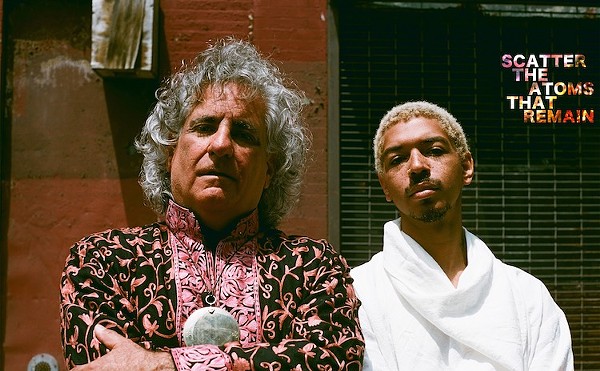There's strings, happy guitar riffs and catchy choruses, then just before the mind decides, "Oh, another pop record," the characters in Trish Murphy's songs arrive full formed. After selling 15,000 copies of her independent CD, "Crooked Mile" (an Americana entry that earned comparison to Tom Petty and Lucinda Williams), the Houston-born singer/songwriter makes a return to her pop-rock roots on "Rubies on the Lawn," her major-label debut.
"I didn't sit down one day after making 'Crooked Mile' and say, 'I want to be a pop songwriter now.' 'Crooked Mile' was more of a songwriting exercise than an artistic statement for me. The new album is much closer to the pop music I grew up with -- classic artists like Elton John, Paul McCartney and Harry Nilsson, and my dad's songs," says Murphy from her home in Austin, Texas.
Influenced by her somewhat bohemian father, Darrell -- who wrote songs, played in '60s pop bands in Houston and eventually gave up the business to support the family -- Trish started singing at 5, picked up the guitar at 11 and went pro with her brother as Trish and Darin, self-releasing two pop CDs, largely sold from the stage.
Where "Crooked Mile" was full of themes of life observed from the road, Murphy, 34, says that if "Rubies" has a theme, it's that "the songs tend to exist more in the present and be a lot less autobiographical."
The lyrics are, however, no less poignant or wise. In "Soul's Day" the character sits in a graveyard talking to tombstones. In "Johnny Too Blue" a Vietnam vet realizes he'll never fully recover. For the song "Sunday" Murphy began with a true story of a violent crime as told by her SWAT-team neighbor.
"He gave me an actual poem written on a legal pad, and I juxtaposed things -- literally writing between the lines." says Murphy. "The whole story was there, scene for scene: the shooting, and the waitress and the cops. The story readily divided itself into verse, and from there I saw images and fleshed it out, rescripted some things, and put it to music."
While the narrative is important to Murphy's process, it's melody, often heightened by the emotional quality expressed in her singing, at which Murphy excels. One prime example is the song "Vanilla Sun" (from which the title "Rubies on the Lawn" is drawn), with dualistic lyrics that have a simple meaning and are what Murphy terms "nonsensical and trippy."
"I've been known to completely change all the words and just keep the vowel sounds in order to convey the necessary emotions. When you're singing it is a lot more interesting to get emotion and innuendo out of a melody than to just have the words jibe."
With a degree in philosophy and 10 years of songwriting under her belt, Murphy describes herself as "a person who likes to peel the onion."
"Wisdom is always the goal at the end of the road," says Murphy. "Songs are really about the process -- the journey more than arriving." But she's not always earnest, as seen in the playful Carlene Carter-like cover of Nancy Sinatra's Lee Hazelwood-penned hit, "These Boots Are Made for Walking" on "Rubies on the Lawn": "At a certain point, it is just rock & roll."


















